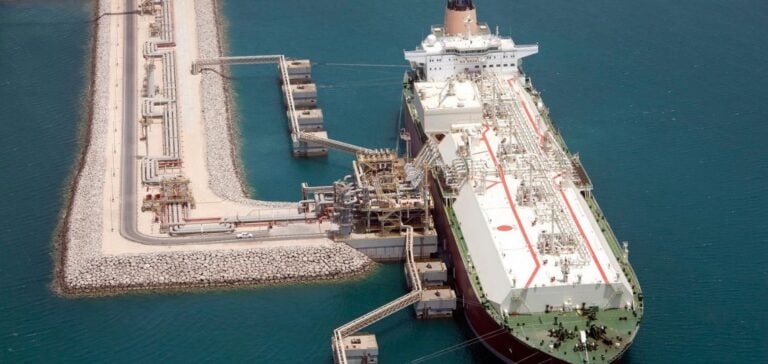Indian Oil Corporation (IOC) recently signed a significant agreement with Abu Dhabi National Oil Company (ADNOC) for the supply of 1 million metric tons of liquefied natural gas (LNG) per year for 15 years, from the Ruwais LNG project.
This contract, the third signed by IOC in just over a year, is valued at a price of around 12.4% over crude oil.
This type of pricing is common in the industry, where long-term contracts are often indexed to the price of oil to reflect market fluctuations.
The agreement was announced during a visit to India by the Crown Prince of Abu Dhabi, Sheikh Khaled bin Mohamed bin Zayed Al Nahyan.
This partnership is part of a wider context of strengthening energy relations between India and the United Arab Emirates.
In addition to this contract, IOC has also signed a 14-year agreement for 1.2 million tonnes per year with ADNOC in July 2023, as well as another contract for 0.8 million tonnes with Total Energies.
These agreements are designed to meet the growing demand for LNG in India, which is expected to increase until the end of the decade.
Analysis of prices and market conditions
The price of 12.4% over crude is considered relatively high by some market players, who note that other companies and trading houses are offering lower prices.
One market player said, “There are offers that are lower than this 12.4% price against crude, which suggests that there may be other considerations at play.” In general, long-term contracts in Asia use a “slope” formula against crude oil as a benchmark, rather than relying on spot LNG prices.
To put this in perspective, a fixed price of 12.4% over Brent, which was $73.995/MMBtu, would imply a cost of $9.175/MMBtu.
This compares with the derivatives valuation for the year 2027, which was $9.325/MMBtu.
Fluctuations in LNG prices on the spot market, notably due to the increase in volumes expected from 2025 onwards, could also influence the competitiveness of long-term contract prices.
Implications for refining demand
LNG demand in India is not limited to marketing, but must also be analyzed in terms of IOC’s internal needs.
Forecasts indicate that refinery demand will increase considerably by the end of the decade.
For example, the Paradip refinery, which currently consumes 0.8 million standard cubic meters per day, could see its capacity increased to 4.5 million standard cubic meters per day.
Similarly, the Panipat refinery is expected to increase its consumption to 7-7.5 million standard cubic meters per day.
The completion of the Indra Dhanush pipeline is also expected to change the consumption dynamics of the Guwahati and Bongaigaon refineries, which will switch from using locally produced gas to LNG.
These refineries are each expected to consume around 1 million standard cubic meters per day.
LNG’s price competitiveness with other fuels, such as fuel oil and naphtha, will play a crucial role in the uptake of these LNG volumes.
Political and economic considerations
The announcement of the agreement between IOC and ADNOC was relayed by the Abu Dhabi media office, underlining the political dimension of this partnership.
Relations between India and the United Arab Emirates in the energy sector are expanding rapidly, and this type of agreement could pave the way for other future collaborations.
Market players are keeping a close eye on these developments, as they could have repercussions on regional LNG dynamics.
In addition, the agreement’s tariff structure, which benefits from a 2.75% duty exemption under the India-Emirates Free Trade Agreement, represents a significant saving for buyers.
This could also influence the purchasing decisions of other LNG-exporting countries, such as Australia and Malaysia, which also have free trade agreements with India.
The outlook for India’s LNG industry is therefore marked by growing demand and strategic agreements that could shape the country’s energy landscape in the years ahead.
Market players must remain vigilant to price trends and new offers that could emerge in an increasingly competitive environment.






















